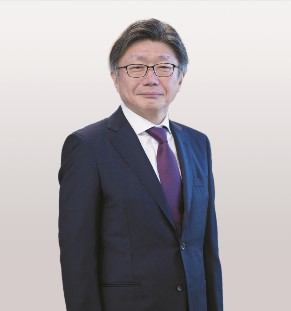Four years to learn independently and thereby discover and solve your own "questions"

The three main pillars of education and research in the School of Information and Communication are "understanding the current state of society," "diverse and cross-disciplinary approaches," and "creation and expression." An important feature of the School of Information and Communication is its emphasis on interdisciplinary learning and diversity, and since the subject of study crosses multiple academic disciplines, it is possible to focus study approaches based on the interests and concerns of each individual student. The curriculum has been devised according to these three pillars. The curriculum is designed to begin with an introduction to a variety of leading-edge research work to lay the foundations for learning, and to enable a phased interdisciplinary approach going forward. The most distinctive feature of the School of Information and Communication's curriculum is the provision of a multilayered learning environment, which consists of customizing courses so that students can independently discover questions and be able to provide resolutions to them to a certain degree. We also expect students to make effective use of seminars that are provided over all four years to solve social problems.
My research area is criminal law. I specialize in interpreting criminal legislation. In order to gain a better understanding of how such laws work, it is necessary to ask a number of questions while benefitting from the results of the social sciences close to jurisprudence. Even in the process of thinking about one’s own specialized subject, it is necessary to look at things from various perspectives. It is natural that not all phenomena occurring in modern society, such as international conflicts, environmental problems, food issues, responses to various disparities, and the occurrence of violent crimes, derive from a single cause. The more complex the event, the less possible it is to analyze the problem and obtain a clear solution from the approach of only one discipline. That is why I believe that the framework of interdisciplinary and cross-disciplinary thinking that can be learned at the School of Information and Communication, which advocates understanding the current state of affairs in society, and approaches that follow methodologies will contribute to solving various modern problems.
However, it is not easy to aim for an interdisciplinary approach. Multidisciplinary learning is not just about taking courses that appear to be following a similar line. The interdisciplinary approach that the School of Information and Communication advocates is one where each student discovers their own intellectual activity and practice for themselves. These discoveries are based on his or her own questions, problem areas that overlap from all the basic theories that are provided in lectures and seminars. Depending on the depth of your own learning, the problem area may be small or infinite. That is why I strongly hope that you will become aware of your responsibility to be an independent learner. In order to support your independent learning, the School of Information and Communication will promote the materialization of active learning. We will also expand educational and student exchange programs in cooperation with overseas universities, including Meiji’s existing "from a global campus” initiative.
Discover your own "questions" by learning many different things in the School of Information and Communication. I am sure that the skills you gain over your four years of independent study aimed at solving your questions will enable you to contribute actively and effectively to society.
Rikiya Abe
My research area is criminal law. I specialize in interpreting criminal legislation. In order to gain a better understanding of how such laws work, it is necessary to ask a number of questions while benefitting from the results of the social sciences close to jurisprudence. Even in the process of thinking about one’s own specialized subject, it is necessary to look at things from various perspectives. It is natural that not all phenomena occurring in modern society, such as international conflicts, environmental problems, food issues, responses to various disparities, and the occurrence of violent crimes, derive from a single cause. The more complex the event, the less possible it is to analyze the problem and obtain a clear solution from the approach of only one discipline. That is why I believe that the framework of interdisciplinary and cross-disciplinary thinking that can be learned at the School of Information and Communication, which advocates understanding the current state of affairs in society, and approaches that follow methodologies will contribute to solving various modern problems.
However, it is not easy to aim for an interdisciplinary approach. Multidisciplinary learning is not just about taking courses that appear to be following a similar line. The interdisciplinary approach that the School of Information and Communication advocates is one where each student discovers their own intellectual activity and practice for themselves. These discoveries are based on his or her own questions, problem areas that overlap from all the basic theories that are provided in lectures and seminars. Depending on the depth of your own learning, the problem area may be small or infinite. That is why I strongly hope that you will become aware of your responsibility to be an independent learner. In order to support your independent learning, the School of Information and Communication will promote the materialization of active learning. We will also expand educational and student exchange programs in cooperation with overseas universities, including Meiji’s existing "from a global campus” initiative.
Discover your own "questions" by learning many different things in the School of Information and Communication. I am sure that the skills you gain over your four years of independent study aimed at solving your questions will enable you to contribute actively and effectively to society.
Rikiya Abe


